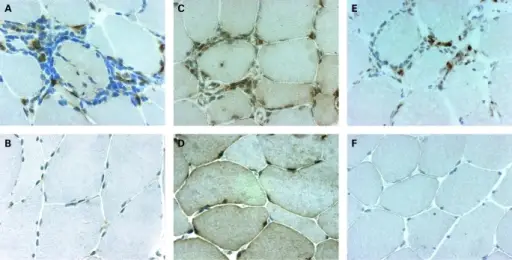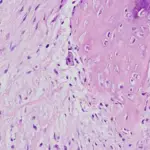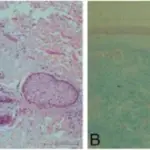Polymyositis is a type of inflammatory myopathy that leads to muscle inflammation and weakness.
What is the Pathology of Polymyositis?
The pathology of polymyositis is:
-Etiology: The cause of polymyositis is a defective cellular immunity due to viral infection, malignancies, or connective-tissue disorders.
-Pathogenesis: The sequence of events that lead to polymyositis is a genetic defect that is triggered by environmental factors that leads to activation of the inflammatory cascade and overexpression of MHC 1 in the muscle fibers.
-Morphologic changes: The morphologic changes involved with polymyositis are varying sizes of muscle fibers, scattered necrotic and regenerating muscle fibers, and endomysial inflammation.
How does Polymyositis Present?
Patients with polymyositis typically are typically women. The symptoms, features, and clinical findings associated with polymyositis include insidious symmetrical and proximal muscle weakness, dysphagia, arthralgias, Patients may have difficulty in using the muscles, difficulty in holding the head up, pericarditis, rash in face, trunk or hands, and pain.
How is Polymyositis Diagnosed?
Polymyositis is diagnosed through laboratory tests such as thrombocytosis in CBC, elevated ESR, elevated muscle enzyme levels, myoglobinuria, autoantibodies, and positive rheumatoid factor.
How is Polymyositis Treated?
Polymyositis is treated empirically using corticosteroids and immunosuppressants. Other agents such as IV IG is used for short term treatment. Diet modification that is high in protein can laso help with the condition.
What is the Prognosis of Polymyositis?
The prognosis of polymyositis is good with most patients responding to treatment and only 30% experience residual weakness.



